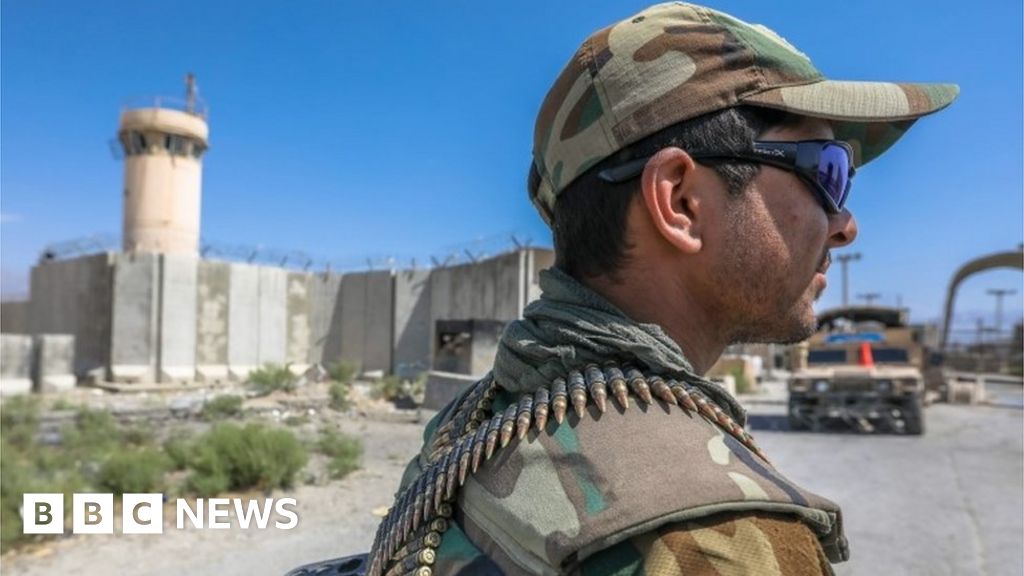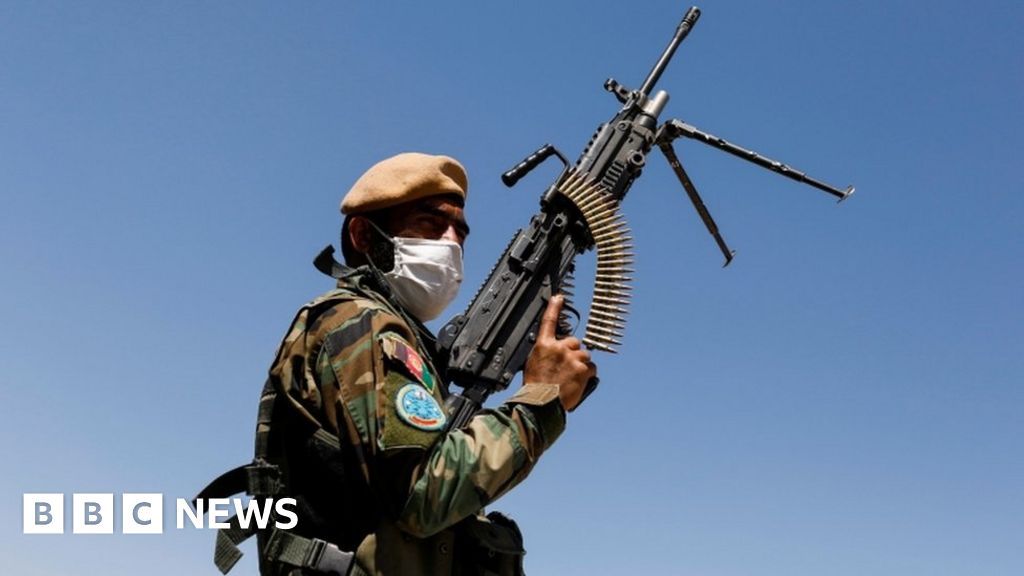Providing Context to News Reports on Taliban Success — Part 1
BBC said:
7 Jul 2021 — The Taliban have entered Qala-e-Naw, provincial capital of Badghis province, a key city in western Afghanistan as they continue a rapid advance. All government officials in Qala-e-Naw, had been moved to a nearby army base.
Security forces carried out air strikes to clear militants from Qala-e-Naw, in the western Badghis province, officials said, and special forces were used to remove insurgents from the government buildings they had briefly occupied.
1. On the one hand, America’s flawed exit strategy for the war in Afghanistan in part depended on the ability of:
(a) the Afghan security forces, and critics of the mission view Afghan forces as generally unreliable — ineffectual in combat and too often unmotivated, erratic or corrupt;
(b) Abdullah Abdullah to work with Ashraf Ghani Ahmadzai to lead a unified government for peace talks with the Taliban. Ashraf Ghani, a Western-educated technocrat known for his anti-warlord stance, brought in Abdul Rashid Dostum as his candidate for first vice president – a prominent former army general during the Soviet war in Afghanistan whose base among Uzbeks, is a key source of votes for Ghani, who is a Pashtun. Abdullah – himself half Pashtun, but extensively affiliated with Tajiks – brings with him a broad non-Pashtun constituency; and
(c) the Biden administration to clean up the mess after Trump, Obama and Bush failures — in fighting this war for 20 years.
2. On the other hand, Abdul Quayom Rahimi, governor of Logar province, gathered hundreds of men carrying guns and Afghanistan’s tricolour flag in the provincial capital, Pol-e Alam.
(a) While anti-Taliban volunteers had begun to appear in Logar earlier this year, Rahimi said he has had hundreds of Kochi men asking to join his force in recent weeks. Rahimi said the gathering was a “deliberate, public show of strength”. “The people know what is at stake and they want to show the Taliban that even if no one else is around to help, the people of Logar and every province themselves will take the fight directly to them,”
he told Al Jazeera.
(b)
Logar with population of 411,845 people (most of whom are former Kochi nomads), consists of 7 districts that encompass 4,410,278 sq km of which 32,693.01 are used for agricultural purposes. The province is best known for producing corn, yogurt and wool. During 2008, Logar produced 31 different crops on 35,602 hectares of land (31% of total area). Most of the cultivated land is located in 5 of the 7 districts, mostly in the western half of the province because of the fertile soil along the Wardak and Maidan Rivers.
3. Afghanistan has an estimated farming population of 12.1 million people, plus a non-farming rural population of about 2.5 million. Many farmers remain food insecure and with very restricted and risky livelihoods. Consumption of meat, vegetables and fruit is very limited and infrequent, most Afghan farmers are not self-sufficient in cereals and only a minority of them are able to sell any cereal surplus.
(a) A very large proportion of farmers have some off-farm income, mainly wages (61%), and there are extensive (and probably understated) reports of remittances received by about 20% of farmers. Though the Ghorband Valley, located in the southern foothills of Hindu Kush, 120km (74 miles) north of capital Kabul, has long been one of the most insecure districts of Parwan. Volunteers say recent events have compelled them to take up arms and defend their people against the Taliban — The Taliban shadow governor has deep ties with the Haqqani network and has led many operations that claimed Afghan and American lives.
(b) The Governor of
Parwan Province is Mohammad Asim Asim, an ethnic Tajik from Baghlan, was appointed governor in June 2015. Parwan has 10 districts: Bagram, Charikar, Ghorband, Jabal seraj, Kohi Safi, Sayed Khel, Shinwari, Shekh Ali, Salang, Surkhi Parsa. Parwan has a total of 760 villages with an estimated population of 560,000 that is composed of Pashtun, Tajik, Uzbek, Qizilbash, Kuchi, Hazara, and other minority groups. Most farmers have livestock; the topography of the area (hilly and mountainous) makes a good environment for raising animals.
(c) In recent weeks, dozens of districts, including in Parwan, fell into Taliban hands. Parwan is located in central Afghanistan, just north of Kabul. Parwan is mountainous in the north with flat plains good for cropping in the center and south. Sheep, goats and cows are the most prevalent livestock. Many of those districts were retaken by Afghan forces within days.
4. The faster than expected pace of the US-led pull out, the tumbling of districts to the Taliban at a surprising speed and scale, not to mention the dread of a highly infectious variant of Covid-19, has added a large lashing of unpredictability to this mix. The last Belgian diplomats bid adieu this week and the Australians shut up shop in May. Germany has closed its consulate in Mazar-i-Sharif in northern Afghanistan in the course of the international military withdrawal, a diplomat said.
5. The French almost left and the British, like everyone else, constantly assess the situation. Embassy evacuation plans for France, Hungary, Japan, Norway, Turkey, the UK and the US are constantly updated, staff numbers have been steadily drawn down - driven by both Covid and security risks - and some bags are packed, just in case. There are days of calm, days of concern.
6. The dual questions of how to continue fighting terrorists and safeguard Afghans who worked with American forces after the U.S. withdrawal became more urgent after the last U.S. troops
left Bagram air base, the largest military base in Afghanistan and the hub of the U.S. war there for nearly 20 years.
(a) Gen. Mir Asadullah Kohistani, Bagram’s new commander insisted the Afghan National Security and Defense Force could hold on to the heavily fortified base despite a string of Taliban wins on the battlefield. The airfield also includes a prison with about 5,000 prisoners, many of them allegedly Taliban.
(b) “In battle it is sometimes one step forward and some steps back,” said Kohistani. Kohistani said the Afghan military is changing its strategy to focus on the strategic districts. He insisted they would retake them in the coming days without saying how that would be accomplished.
(c) Kohistani said the U.S. left behind 3.5 million items, all itemized by the departing U.S. military. They include tens of thousands of bottles of water, energy drinks and military ready made meals, known as MRE’s. “When you say 3.5 million items, it is every small items, like every phone, every door knob, every window in every barracks, every door in every barracks,” he said.
(d) The big ticket items left behind include thousands of civilian vehicles, many of them without keys to start them, and hundreds of armored vehicles. Kohistani said the U.S. also left behind small weapons and the ammunition for them, but the departing troops took heavy weapons with them. As of 6 Jul 2021 (Tues), the U.S. military had completed 90% of the withdrawal, according to U.S. Central Command.



